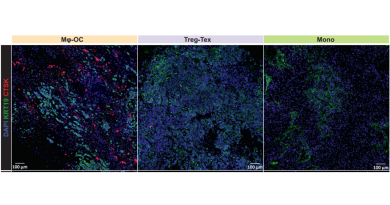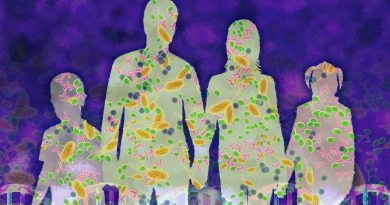Tobacco smoking increases lung entry points for COVID-19 virus
Tobacco smoking is a risk factor for serious conditions and now researchers at Baylor College of Medicine, the University of South Carolina and other institutions have found evidence that it also could increase the risk for infection of the COVID-19 virus.

Co-corresponding authors Dr. Christopher I. Amos, director of the Institute of Clinical and Translational Research at Baylor, Dr. Guoshuai Cai, assistant professor at the University of South Carolina, and their colleagues analyzed datasets of the RNA expressed by various types of lung tissue, comparing current and former smokers and non-smokers.

They looked at the expression of ACE2, the molecule in the respiratory tract that the COVID-19 virus uses to attach to and infect human cells. They also looked at the expression of FURIN and TMPRSS2, human enzymes known to facilitate COVID-19 virus infection.
The researchers report a 25 percent increase in the expression of ACE2 in lung tissues from ever-smokers, people who have smoked at least 100 cigarettes during their lives, when compared with nonsmokers. Smoking also increased the presence of FURIN, but to a lower extent compared to ACE2. TMRPSS2 expression in lungs was not associated with smoking.
In addition, smoking also remodeled the gene expression of cells in the lungs so that the ACE2 gene was more highly expressed in goblet cells, cells that secrete mucus that protects membranes in lung tissues.
The significant smoking effect on ACE2 pulmonary expression identified in this study indicates not only an increase in the entry points for the COVID-19 virus but also may suggest an increased risk for viral binding and entry of the virus in the lungs of smokers.
The findings provide valuable information for identifying potentially susceptible populations.
“We hypothesized that the worse outcomes of COVID-19 infections in regions of the world with high levels of cigarette smoking may reflect host factors,” Amos said. “Studies of COVID-19 patients would help resolve the influence of smoking on COVID-19 outcomes.”
Find the complete study in the American Journal of Respiratory and Critical Care Medicine.
Yohan Bossé at Québec University Institute for Cardiology and Pulmonology, Feifei Xiao at the University of South Carolina and Farrah Kheradmand at Baylor College of Medicine contributed to this work.



